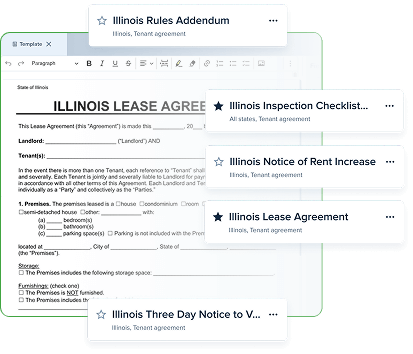24-Hour Notice to Enter
A landlord will send a 24-Hour Notice to Enter to tenants to alert them that the property will be entered on a specified day and time.
Most states require that landlords give at least one day's notice, but even if your state doesn't have any guidelines, it's strongly advised that you notify the renter ahead of time.
24-hour notice is typical for routine maintenance, pest management, and non-emergency situations.
24 hour Notice to Enter
Give the tenant proper notice about the landlord's proposed visit.Generate a document with our document builder
Customize it using auto-fill elements if needed
E-sign and require signatures from tenants
What you need to know
Can a landlord visit without permission?
The landlord or a property manager can only enter the tenant's house in an emergency, perform essential or agreed-upon repairs or renovations, provide necessary or agreed-upon services, or exhibit the unit to possible purchases, renters, or repair personnel. Unless there is an emergency, the landlord should give the tenant at least 24 hours' written notice of the proposed entrance date, time, and purpose.
What are allowable reasons for a landlord to visit a rental?
The landlord can organize walk-throughs once or twice a year to check for needed repairs. Consider this provision established in your lease or rental agreement. The landlord has the right to access rental property in the following circumstances:
When a tenant offers permission.
When there is an emergency in a rental apartment.
If maintenance or repairs are needed.
To show a property to potential tenants or buyers.
What should be included in a 24-hour Notice to Enter?
A 24-Hour Notice to Enter is a brief letter that provides only the essential details needed to notify the renter of the upcoming event. We recommend including the following information in an agreement:
The registered tenant's name;
The reason for the entry (inspection, repairs, etc.);
Address of the rental property;
The date and hour of the scheduled arrival;
The landlord's contact information.

